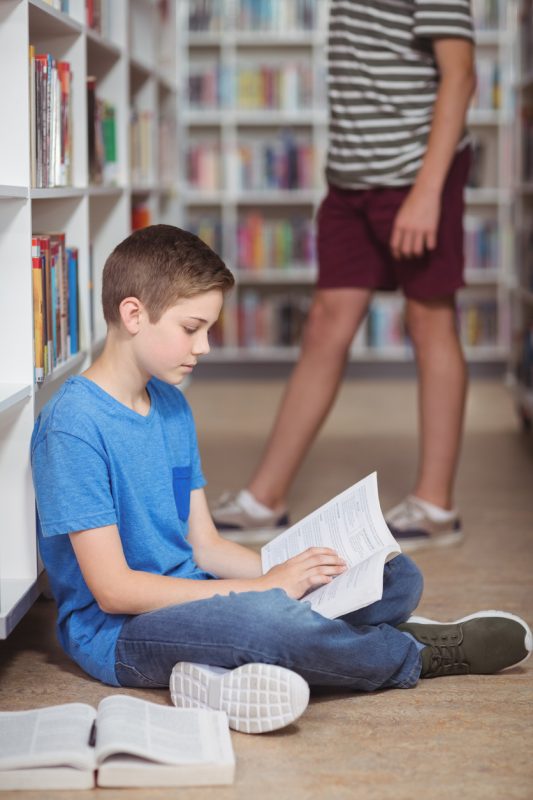
Hey Dad… or Mum
Please keep pursuing me!
When my door is shut – Keep knocking.
When my words are few – Keep talking.
When my mood is low – Keep smiling.
When I snap at you – Stay.
When I walk away – Stay close behind.
Please don’t give up – Please keep pursuing me.
I do need you <3
Your teen.



 Keeping a clean and tidy house is important not only when the kids come over but also for your own well-being and mental health. Here are some tips for keeping a good house when the kids come over:
Keeping a clean and tidy house is important not only when the kids come over but also for your own well-being and mental health. Here are some tips for keeping a good house when the kids come over: Use storage solutions: Use storage solutions such as baskets, bins, and shelves to keep things organized. This will help you keep clutter at bay and make it easier to find things when you need them.
Use storage solutions: Use storage solutions such as baskets, bins, and shelves to keep things organized. This will help you keep clutter at bay and make it easier to find things when you need them. The best time to introduce your children to your new partner can vary depending on several factors, including the age and temperament of the children, the nature and stability of the relationship, and the emotional readiness of everyone involved.
The best time to introduce your children to your new partner can vary depending on several factors, including the age and temperament of the children, the nature and stability of the relationship, and the emotional readiness of everyone involved. Not sure about other dads but I entered the world of fatherhood completely unprepared. I didn’t realise how demanding it was going to be, I think women have a better advantage. Women group together and talk about parenting, share stories and experiences far more than we ever would. So it is probably no surprise that their skills, ability and knowledge are more fine tuned when children arrive on the scene.
Not sure about other dads but I entered the world of fatherhood completely unprepared. I didn’t realise how demanding it was going to be, I think women have a better advantage. Women group together and talk about parenting, share stories and experiences far more than we ever would. So it is probably no surprise that their skills, ability and knowledge are more fine tuned when children arrive on the scene. Even though separation and divorce is common place, it still feels like failure and in some ways we are embarrassed at times because of it. We get pigeon holed into “single dad” or “separated father” when in fact we are simply a “dad” or a “father”.
Even though separation and divorce is common place, it still feels like failure and in some ways we are embarrassed at times because of it. We get pigeon holed into “single dad” or “separated father” when in fact we are simply a “dad” or a “father”. When people think of domestic and family violence, they often think of how much it hurts the adult victim. It’s true that domestic and family violence is most often violent, abusive or intimidating behaviour. But what you may not realise is that children also experience domestic violence and this affects their physical and emotional health and wellbeing. Growing up in a family where there is a perpetrator of Domestic Violence can cause serious long term mental health issues for the children of that home.
When people think of domestic and family violence, they often think of how much it hurts the adult victim. It’s true that domestic and family violence is most often violent, abusive or intimidating behaviour. But what you may not realise is that children also experience domestic violence and this affects their physical and emotional health and wellbeing. Growing up in a family where there is a perpetrator of Domestic Violence can cause serious long term mental health issues for the children of that home. Many children worry about what will happen to them when their parents split up, and it can be a big relief to them if the arrangements become clear and predictable early on. Working out a parenting plan as early and as quickly as possible serves many purposes such as it gets your children into a regular routine, you can have certainty around access, holidays, do we share in the buying of gifts and presents, do we share clothes etc.
Many children worry about what will happen to them when their parents split up, and it can be a big relief to them if the arrangements become clear and predictable early on. Working out a parenting plan as early and as quickly as possible serves many purposes such as it gets your children into a regular routine, you can have certainty around access, holidays, do we share in the buying of gifts and presents, do we share clothes etc. Dear Mum and Dad,
Dear Mum and Dad,

















New dad tips for parenting infants and toddlers
Parenting infants and toddlers is amazing, rewarding and frustrating and it can happen all in the same day.
Imagine being a toddler for just a minute…they can’t articulate clearly what you want, they are completely managed by a parent, given food that you might not like, dressed and changed multiple times a day and restricted to the confines of a play pen, bed or high chair.
All very normal and right but it can cause the child to occasionally throw a tantrum and its these moments we find the most difficult.
There are somethings dad you can do to help reduce the stress in your household and possibly make tantrums less frequent, such as:
Love is the first step
Not to many rules
Don’t bombard your child with to many rules, make your home child safe so they can crawl around where ever they want without being told “not’ to do or touch that. It can eliminate one frustration. Your child might start to get frustrated if you are saying “no” all the time, so look for many opportunities to say “yes”.
If you are getting a lot of “no’s” try not to react, simply repeat the request in a nice calm voice. Is there some way you can make what your’e asking your child to do that could be made more fun? All aged children prefer to do tasks that are fun and enjoyable.
Give them choices
If its changing into PJ’s and he or she doesn’t want to, try getting two out for them to choice which one they would prefer to put on. Same goes with going to bed, its always a trigger for pushback. Try getting two books and asking which one will we read tonight?
If there is a power struggle and we know there will be, you can use choices like “Its bed time, would you prefer to brush your teeth or put your Pyjamas on first?
Stick to a routine as if your life depends on it
Routines help children feel safe and secure. Because when you introduce things that happen the same time every day, things like waking up, breakfast time, lunch time, dinner time, cleaning your teeth, what time you come home from work, time for a snack or a sleep, it allows the child to trust you and they are left feeling emotionally secure to just play, explore and be a child.
Be a good role model
Set examples, remember you might not think your child is listening but I guarantee they are watching everything you do.
Teaching your infant or toddler new skills
Teaching them how to perform simple tasks like putting on a jumper, or putting toys away can be a great start. Start teaching them by talking through the instructions of each task whilst you perform them.
“ok Jimmy, lets pick up all the yellow toys and put them back in the box, see 1,2,3. Then we pick up the blue balls and put them in the box, 1 blue ball, 2 blue ball, 3 blue balls, into the box so they can rest for the night and it keeps the room clean and tidy. Why don’t you show me how you can pick up the pencils and put them in the box too?
Teach instruction on everything you do from the earliest age possible and before you know it, you will have a more ready to help child and less tantrums.
What tips or ideas have you got that you could share with other first time dads? Share them below in the comments box.